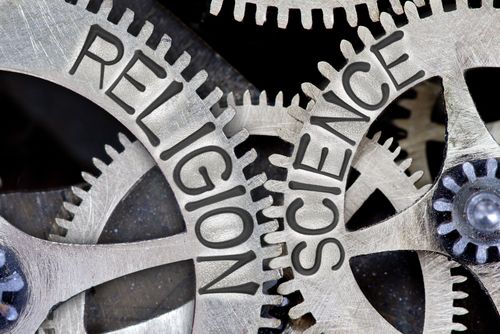 Atheists and theists often disagree as to the nature of belief or, more specifically, how and why individuals believe the things they do. Atheists often claim that believers are overly imprudent and have faith in things far too easily without letting reason or logic intervene. Theists, on the other hand, often say that atheists are excessively skeptical and that they tend to deny important and sometimes obvious evidence. Some even go so far as to say that some atheists actually believe in God, but that they willfully ignore evidence of Him out of spite, rebellion or pain.
Atheists and theists often disagree as to the nature of belief or, more specifically, how and why individuals believe the things they do. Atheists often claim that believers are overly imprudent and have faith in things far too easily without letting reason or logic intervene. Theists, on the other hand, often say that atheists are excessively skeptical and that they tend to deny important and sometimes obvious evidence. Some even go so far as to say that some atheists actually believe in God, but that they willfully ignore evidence of Him out of spite, rebellion or pain.
This ongoing argument between theists and atheists may be tired, but it does pose an interesting conundrum about the nature of belief. Can one choose what to have faith in, or is it strictly innate? An exploration into this question may not only illuminate whether or not theists are overly imprudent or atheists overly skeptical, but it also could help both to better frame their arguments in an attempt to reach a mutual understanding and respect for one another's choices.
Voluntarism
When it comes to where beliefs originate and why, scholars, philosophers and religious leaders lump the theories into two schools of thought: voluntarist and involuntarist. Voluntarists accept that belief is a matter of will, and that you have control over what you choose to believe, to what extent you believe and in what way you exercise those choices — at least, that is the case when it comes to religious dogma.
Though anyone can be a voluntarist, people in this camp tend to be Christians. This should not come as a surprise, as Christians accept the concepts of heaven and hell, and hold a person morally responsible for his or her actions. Nonbelief cannot be treated as a sin if a person does not have control over it.
Furthermore, Christians ascribe to the “paradox of grace.” People have the responsibility to try to believe. God, however, has the ultimate discretion to decide if someone is successful or not.
Despite this paradox, Christianity generally relies on the notion that belief in the uncertain, and even the impossible, is a choice. This notion is what allows them to continue to subscribe to the notion of heaven and hell. Choose Jesus and you will go to heaven. Choose atheism and you are on the path to hell.
Involuntarism
Involuntarists believe that one cannot choose to believe in just anything. According to popular involuntarists, faith does not come by command. Rather, you either believe or you don’t. Though further exploration may reveal evidence that sways you, you cannot just choose to believe because the Bible, your family and your church tell you to.
Though involuntarism has been attributed to atheists, there has not been any noticeable trend in atheists swaying toward either camp. Christians are the ones who regularly try to lump people into categories. When it comes to atheists, Christians say they have chosen not to believe, and therefore, they will be punished for their lack of faith.
However, for many atheists, not believing is not a choice they came to out of spite or rebellion. For many, it is a matter of knowledge, or lack of it. Many atheists can no more choose to be atheist than you can choose to believe that the sky doesn’t exist or that the ground beneath you has fallen away. For involuntarists, belief requires good reason. “Good reason” differs for everyone, but the bottom line is it is those reasons that create belief — not choice.



